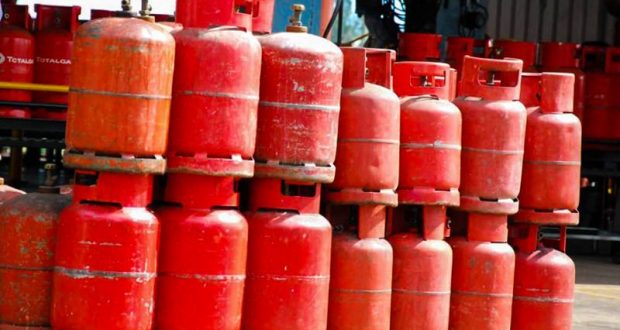Nigerian Liquefied Petroleum Gas (LPG) otherwise known as cooking gas, consumers need not panic about a possible scarcity of the product as a result of the force majeure declared by the Nigerian Liquefied Natural Gas (NLNG) on Monday.
Force majeure is a common clause in contracts, which essentially frees both parties from liability or obligation when an extraordinary event or circumstance beyond the control of the parties. The circumstances include war, strike, riot, crime, epidemic or sudden legal changes, which prevent one or both parties from fulfilling their obligations under the contract.
Giving this assurance yesterday on a live television show monitored in Lagos was the General Manager, External Relations and Sustainable Development, NLNG, Mr. Andy Odeh. According to him, “Nigerians need not rush to fill their gas cylinders as there is enough quantity of LPG to satisfy the market. The flooding or force majeure declared has not impact on LPG availability.” The NLNG account for 40 percent supply of gas in the domestic market.
Odeh, further explained in statement yesterday, that the company’s plant was in operation at a limited capacity, due to reduced gas supply from some of its upstream gas suppliers.
“None of NLNG’s assets on Bonny Island or in any of its host communities are impacted by the flood. The Force Majeure is as a consequence of a similar notice by upstream gas suppliers due to the impact of flood in their production facilities. NLNG continues to monitor the situation with upstream gas suppliers and is evaluating the impact of the flood on its business,” he said, assuring that the firm was working with all critical stakeholders to mitigate the impact on product deliveries.
A checks yesterday across the Lagos metropolis showed that depending on the location, cooking gas still maintains its price range of between N9, 400 and N11, 000 per 12.5kg cylinder. But, notwithstanding Odeh’s assurance, the Liquefied Petroleum Gas Retailers (LPGAR) is concerned that the shutting down of the NLNG processing plant may lead to increase in cooking gas price.
Its National Chairman, LPGAR, a Branch of the Nigeria Union of Petroleum and Natural Gas Workers (NUPENG), Mr Umudu Michael, argued that the force majeure by NLNG means that LPG marketers will depend more on LPG importers having depots in Lagos for their supplies. This, he further said, makes the scarcity of the commodity high and will naturally translate to a rise in its price as the country may have to resort to importation.
He regrets that when natural disasters such as the ongoing flooding in the country leads to such force majeure by a major LPG production company, the impact can be enormous in the market. He further explained that the implication of the present situation is that at the moment, since it is unclear when the flood will recede, it means the LPG market will also remain in a state of uncertainty.
Michael said that it the incident coming at this time is really bad for the country which is still struggling with its LPG sector, irrespective of the intervention of the NLNG in the country’s LPG market which was brokered by the Federal Government about 15 years ago. NLNG presently accounts for 40 percent supply of the LPG for domestic consumption.
“Again, it is obvious that NLNG, even at its 100 per cent of LPG production capacity cannot presently meet the domestic demand, hence importation by the major companies such as NIPCO. It appears that the importers take advantage of this gap to peg prices based on the importation cost even when most of the product is supplied domestically by NLNG. I will advise NLNG, as a matter of national service, to try as much as possible to continue with its regular supply if it means adjusting its enabling facilities in view of the impact of the flooding,” Michael said.
 Financial Energy Review
Financial Energy Review





